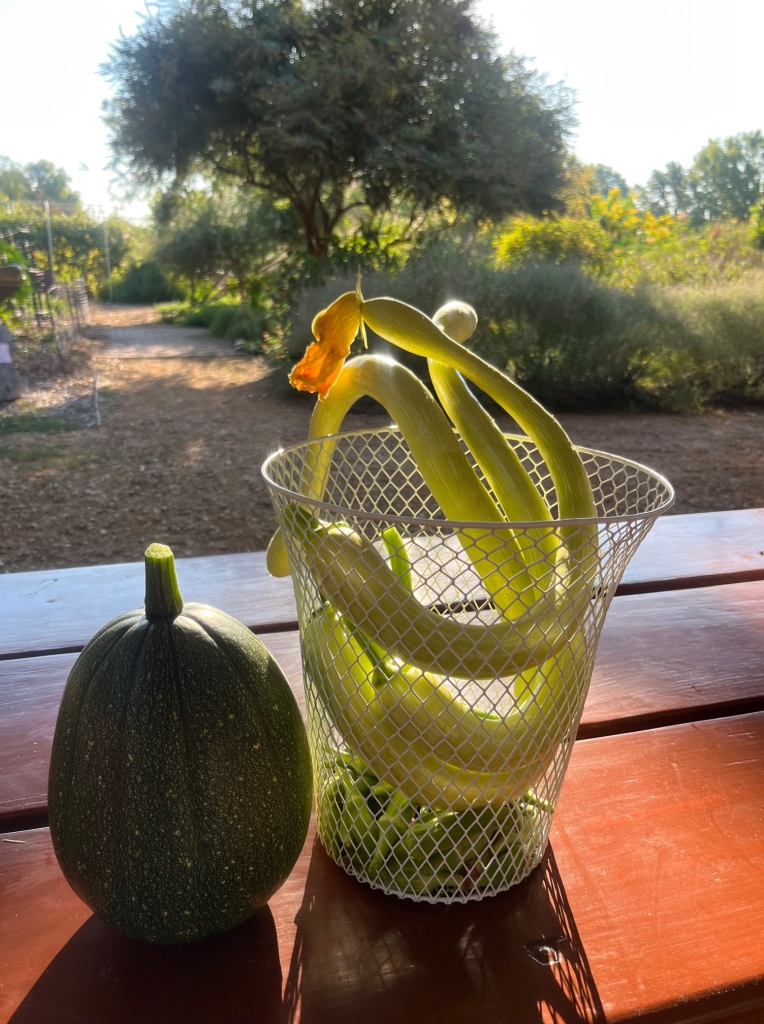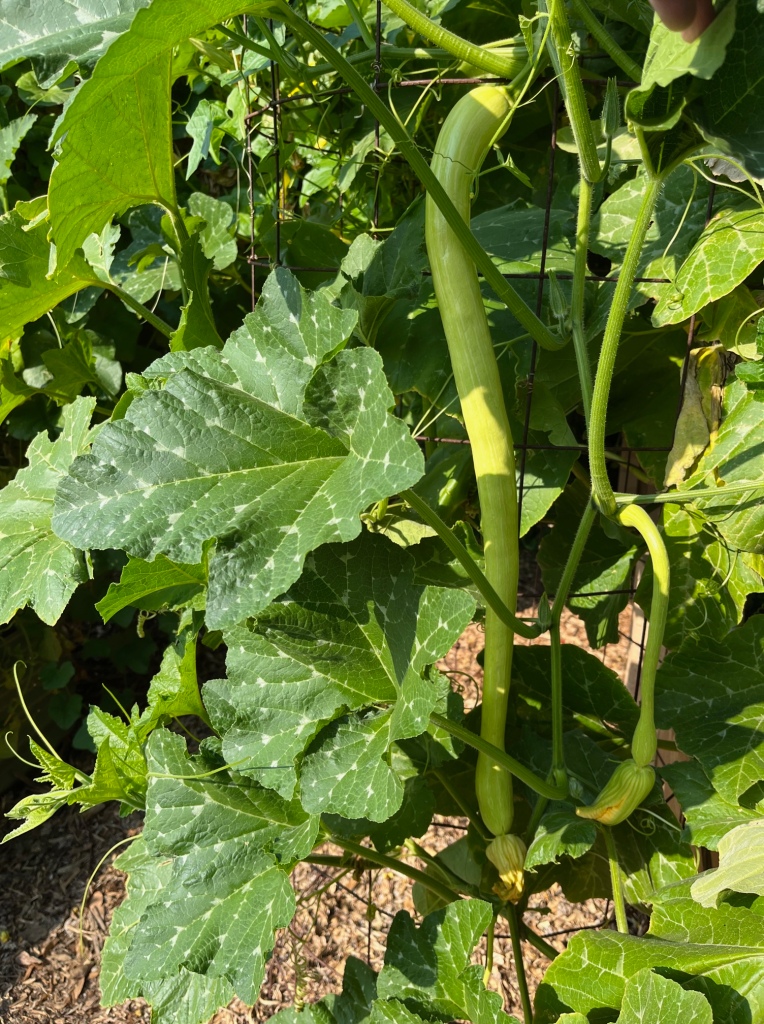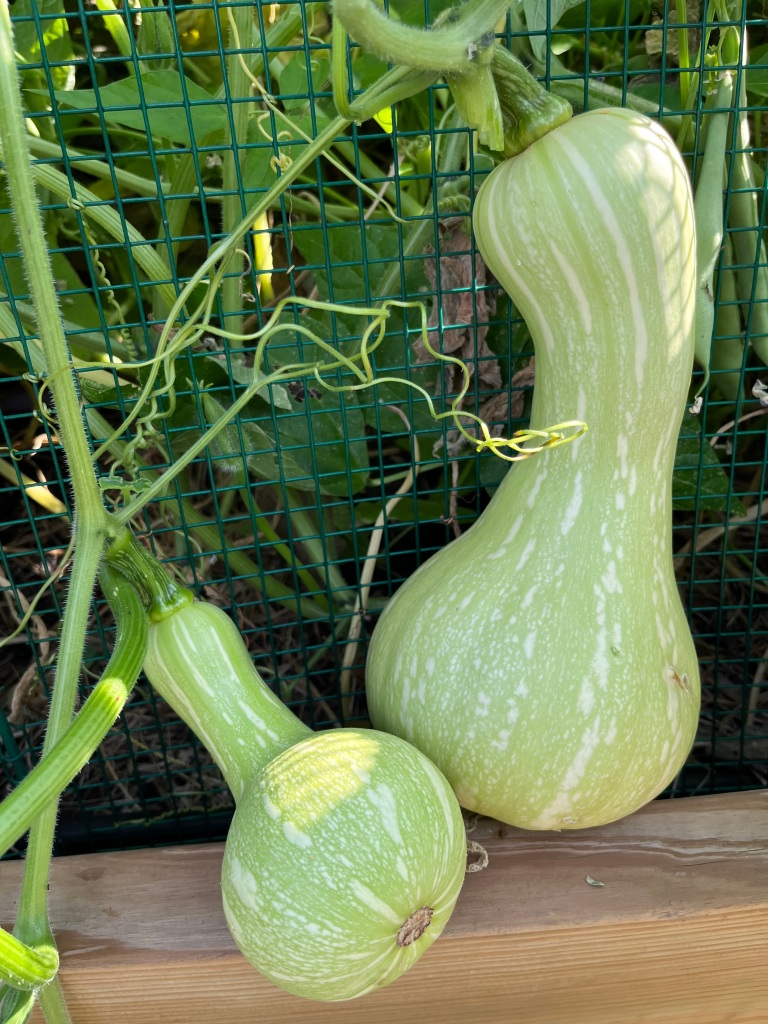October 11, 2022
I have to say that the squash vine borers (SVBs) were getting me down. After spending the summer of 2021 removing borers from the squash plants and still not seeing much of a harvest, I swore off growing squash, almost.
The SVB larva grows inside the squash vine (often killing the plant) and then makes a cocoon that overwinters in the soil. The adult moth emerges from the cocoon in spring and lays eggs on the undersides of the squash leaves. The eggs hatch and the larvae begin destroying your plants again.
One solution is not to have any squash handy for the adults to lay their eggs on (thus the almost swearing off). You can also interrupt this cycle by finding and removing the eggs. That is a real challenge unless you have a small number of plants and time to check every single leaf every day.
We started off the spring season with some lovely Italian cucumbers that were producing well but suddenly began to droop just like the squash had the previous summer. It turns out that if they don’t find any squash, the borers may settle for your favorite cucumber. It almost seems spiteful.
I was persuaded by a team member to try growing butternut squash in late summer. Cucurbita moschata has a reputation for borer resistance. Throwing caution to the wind, we decided to try zucchino rampicante and calabacita as well.
Despite my skepticism, we have a raised bed full of butternut squash maturing now with no sign of SVBs.
The zucchino rampicante is in the same family and has a hard stem that I assumed the borers would not be able to breach. However, we found a few larvae in the stems and removed them. The plant now has huge beautiful leaves and vines that run about 12 feet. It is producing two foot long fruits that weigh a pound or so.


The calabacita (Cucurbita pepo), also known as tatume or Mexican zucchini, has a tough, thin vine and has shown few signs of distress from SVBs. It is taking up a lot of garden space but makes up for it by being very productive. The fruit may be eaten like a thin skinned summer squash or allowed to grow into a soccer ball sized pumpkin.
Going forward I will swear off swearing off.
Beverly Allen, Dallas County Master Gardener Class of 2018


